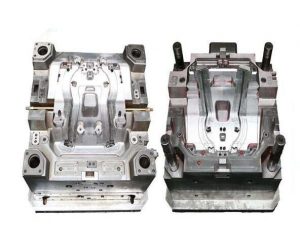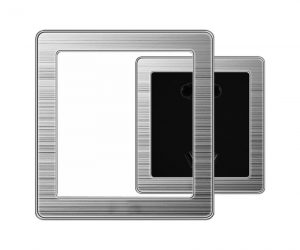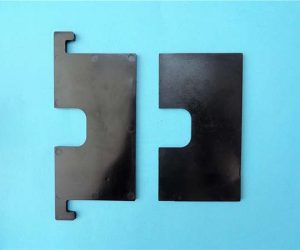The Algorithmic Precision of Mechanical Parts Manufacturing: A Dissection of Innovation, Control, and Global Impact. The creation of mechanical parts transcends mere fabrication; it's a complex interplay of legacy techniques and emergent technologies, a delicate balance between established processes and the chaotic dynamism of innovation. This intricate choreography demands a nuanced understanding, extending far beyond the simplistic categorization often presented.
The Genesis of Precision: Redefining the Mechanical Parts Manufacturer
Mechanical parts manufacturers are not merely fabricators; they are the architects of industrial functionality. Their purview extends beyond the simple production of components; they are deeply embedded in the design, engineering, and iterative refinement of the intricate building blocks that power modern civilization. These entities, far from being passive suppliers, actively shape technological trajectories across diverse sectors, their influence echoing through the complex machinery and systems that underpin our global infrastructure.
The Unsung Architects of Progress: The Vital Role of Mechanical Parts Manufacturing
The mechanical parts manufacturing sector is not merely a cog in the industrial machine; it is the machine itself, a dynamic network of innovation and precision that underpins technological progress. From the finely tuned components within automotive powertrains to the life-critical systems of aerospace engineering, the industry's contribution is ubiquitous, often unseen yet fundamentally indispensable. Their impact transcends mere functionality; it's a silent force driving economic growth, global competitiveness, and the relentless march of technological advancement.
A Deep Dive into the Machinations of Manufacturing: Exploring the Guide's Scope
This analysis will dissect the intricacies of the mechanical parts manufacturing landscape, moving beyond superficial observations to explore the underlying mechanisms of innovation, quality assurance, and the profound impact on global industry. We will examine the cutting-edge technologies driving the sector's evolution, the inherent challenges faced by manufacturers operating within increasingly complex regulatory and competitive environments, and the innovative solutions they deploy to navigate these turbulent waters. The goal is to provide a nuanced understanding of the critical role these manufacturers play in shaping the future of industrial production.
From Artisanal Craftsmanship to Algorithmic Precision: A Historical Trajectory
The origins of mechanical parts manufacturing are deeply intertwined with the very evolution of human ingenuity. Early forms, rooted in rudimentary craftsmanship, laid the groundwork for the sophisticated industrial processes of today. The transition from individual artisans to specialized workshops and, ultimately, to large-scale manufacturing enterprises, reflects a profound shift in human societal organization and technological capability.
The Industrial Revolution's Forging Fire: A Paradigm Shift in Manufacturing
The Industrial Revolution was not merely a period of technological advancement; it was a fundamental reimagining of production itself. The introduction of steam power, the mechanization of processes, and the implementation of the division of labor fundamentally reshaped the landscape of mechanical parts manufacturing, paving the way for mass production and the rise of industrial giants. This era laid the groundwork for the global interconnectedness and technological sophistication that define the modern industrial world.
The Algorithmic Age of Manufacturing: Navigating the Technological Singularity
The 20th and 21st centuries have witnessed an exponential acceleration in technological advancement within the mechanical parts manufacturing sector. The advent of CNC machining, additive manufacturing (3D printing), the development of advanced materials with unprecedented properties, and the implementation of sophisticated, data-driven quality control systems have fundamentally transformed the industry. This relentless technological evolution continues to redefine the limits of precision, efficiency, and adaptability, promising a future where manufacturing processes are increasingly autonomous, intelligent, and responsive to the ever-shifting demands of the global marketplace. The implications are profound, extending far beyond the factory floor and into the very fabric of our technological future.
A Legacy of Precision, A Future of Unpredictability:
Traditional manufacturing, far from being obsolete, forms the bedrock upon which advanced techniques are built. While manual machining and casting might appear rudimentary, their mastery requires an almost alchemic understanding of material behavior and tool interaction. This expertise, coupled with incremental advancements in tooling and process control (driven by everything from sophisticated algorithms to the subtle nuances of human skill), continues to yield components of remarkable precision and reliability, even in the face of increasingly demanding specifications. The seemingly simple act of welding, for instance, now encompasses a spectrum of techniques, from laser welding's microscopic precision to friction stir welding's ability to join dissimilar metals with minimal distortion.
Advanced manufacturing technologies, however, represent a paradigm shift. The marriage of CAD/CAM and generative design algorithms allows for the creation of parts with geometries previously deemed impossible. This unlocks unprecedented levels of optimization, pushing the boundaries of performance while simultaneously reducing material waste. The rise of additive manufacturing (3D printing) introduces further complexity, enabling the creation of intricate, lattice-like structures with unparalleled strength-to-weight ratios – structures that defy the limitations of subtractive manufacturing. Furthermore, the integration of AI and machine learning into these processes introduces an element of unpredictability, as algorithms adapt and evolve, constantly refining their approaches based on real-time data feedback.
Navigating the Labyrinth of Quality and Control:
Quality control in this environment transcends simple inspection; it demands a holistic approach encompassing the entire lifecycle of a component. Dimensional inspection, while crucial, is only one piece of the puzzle. Advanced metrology techniques, including laser scanning and coordinate measuring machines (CMMs), provide unprecedented levels of accuracy. However, the true challenge lies in integrating these technologies with predictive analytics and process monitoring systems to anticipate and prevent defects before they occur. This requires not only sophisticated instrumentation but also a deep understanding of statistical process control and the ability to interpret the often-ambiguous signals generated by complex manufacturing systems.
Challenges and the Elusive Pursuit of Solutions:
The mechanical parts manufacturing landscape is fraught with challenges, each possessing its own unique character. Supply chain volatility, driven by geopolitical instability and unpredictable demand, creates constant uncertainty. Labor shortages, exacerbated by the skills gap, necessitate a shift towards automation and reskilling initiatives. The relentless pressure to reduce costs while simultaneously enhancing performance and sustainability requires manufacturers to embrace innovative strategies, including lean manufacturing principles, Industry 4.0 technologies, and the strategic deployment of digital twins for predictive maintenance and process optimization. The successful navigation of these challenges demands not just technological prowess but also exceptional strategic foresight and adaptability.
The Ripple Effect: Impact Across Industries:
The influence of mechanical parts manufacturers extends far beyond their immediate clients. They are the silent architects of progress, underpinning innovation across diverse sectors. The automotive industry's relentless pursuit of efficiency and performance is inextricably linked to the advancements in engine design and lightweight materials enabled by these manufacturers. The aerospace industry's demand for absolute reliability depends on their ability to produce components capable of withstanding extreme conditions. The medical device industry's reliance on precision and biocompatibility necessitates a level of manufacturing expertise that pushes the boundaries of what's possible. In essence, the progress of countless industries hinges on the often-unsung contributions of these crucial players.
Deconstructing the Selection Process: A Calculus of Risk and Reward
Choosing a mechanical parts manufacturer transcends mere vendor selection; it's a strategic decision fraught with potential pitfalls and unforeseen consequences. The seemingly straightforward criteria – technical capabilities, quality assurance, production capacity, delivery reliability – represent only the tip of a multifaceted iceberg. A comprehensive assessment necessitates a deeper dive into the manufacturer's operational DNA: their intellectual property protection protocols, their resilience to supply chain disruptions (considering geopolitical instability and unforeseen material shortages), their financial health (including debt-to-equity ratios and cash flow projections), and the nuanced interplay between their organizational culture and their commitment to innovation. Furthermore, the manufacturer's ethical sourcing practices, their adherence to international labor standards, and their long-term sustainability initiatives must be rigorously scrutinized. This is not simply a transaction; it's a complex, high-stakes partnership.
Due Diligence: Beyond the Surface Gloss
Evaluating potential manufacturers demands a sophisticated methodology exceeding cursory research and superficial communication. A comprehensive assessment necessitates on-site audits, rigorous examination of their quality management systems (ISO 9001 certification alone is insufficient), and detailed analysis of their production processes, including failure modes and effects analysis (FMEA) documentation. Reference checks should extend beyond simple testimonials; they should involve probing inquiries into past performance under pressure, including instances of unexpected demand surges or critical component failures. The manufacturer's responsiveness to unforeseen challenges, their capacity for adaptive learning, and their proactive risk mitigation strategies are paramount.
Interrogation: Unveiling Hidden Truths
The art of questioning transcends simple inquiries. It requires a nuanced understanding of the manufacturer's capabilities and limitations. Questions must probe beyond stated specifications, delving into their capacity for handling unforeseen complexities, their tolerance for ambiguity, and their ability to navigate the inherent uncertainties of large-scale manufacturing. Inquiries should encompass their intellectual property safeguards, their contingency plans for supply chain disruptions, their experience with complex regulatory landscapes, and their capacity for rapid technological adaptation. The goal is not simply to gather information, but to unveil the manufacturer's true operational resilience and strategic foresight.
The Evolving Landscape: Navigating the Uncertain Future of Mechanical Parts Manufacturing
The industry's future is not a predetermined trajectory, but a dynamic interplay of technological advancements, geopolitical shifts, and evolving consumer demands. Industry 4.0 is not merely a buzzword; it represents a fundamental transformation requiring manufacturers to embrace data-driven decision-making, predictive analytics, and the seamless integration of AI-powered systems. Additive manufacturing, while promising, presents its own set of challenges, requiring a nuanced understanding of material limitations and process optimization. The increasing demand for highly specialized, precision-engineered components necessitates a paradigm shift towards agile, flexible manufacturing models capable of rapid adaptation and customization. Sustainability, however, is not merely a trend; it represents a critical imperative, shaping not only the industry's future but its very survival. The manufacturers who fail to integrate sustainable practices into their core operations will find themselves increasingly marginalized.
Sustainability: Beyond Greenwashing
Sustainability is not a superficial marketing ploy; it's a fundamental shift in manufacturing philosophy. It demands a holistic approach encompassing energy efficiency, waste reduction, responsible material sourcing, and a commitment to circular economy principles. Manufacturers must demonstrate tangible progress, not simply aspirational goals. This requires transparency, verifiable data, and a commitment to continuous improvement. The future belongs to those who not only meet the demands of a sustainable future but actively shape it.
The Algorithmic Crucible: A Deep Dive into the Evolving Landscape of Mechanical Parts Manufacturing
A. Beyond the Gears: Deconstructing a Complex Ecosystem
This analysis transcends a mere overview; it dissects the intricate, often chaotic, dance of mechanical parts manufacturing. We move beyond simplistic narratives of innovation and efficiency, exploring the unpredictable interplay of technological advancements, geopolitical shifts, and the inherent human element that shapes this critical industry. From the micro-level precision of atomic force microscopy to the macro-level complexities of global supply chains, we unveil the hidden forces driving this dynamic sector. The narrative unfolds not as a linear progression, but as a fractal pattern, revealing emergent properties at each scale.
B. The Unsung Architects of Modernity: A Critical Reassessment
Mechanical parts manufacturers are not merely cogs in the industrial machine; they are its architects, constantly re-engineering the very foundations of our technological civilization. Their influence extends far beyond the tangible products they create, impacting geopolitical stability, economic growth, and the very fabric of our daily lives. Their successes and failures ripple outwards, creating unforeseen consequences that demand a deeper, more nuanced understanding than simplistic pronouncements of "vitality" and "progress" can offer. The future, far from being a pre-ordained trajectory, is a space of constant negotiation, a battleground where innovation clashes with unforeseen challenges.
C. Navigating the Labyrinth: A Call to Unconventional Inquiry
The future of mechanical parts manufacturing is not a destination, but a perpetually shifting landscape. This necessitates a radical rethinking of traditional approaches to learning and exploration. Passive consumption of industry reports is insufficient. We urge a proactive engagement: immersive fieldwork in manufacturing plants, rigorous analysis of supply chain vulnerabilities, and a critical examination of the ethical implications of technological advancements. The path forward requires not only technical expertise but also a deep understanding of the socio-economic and environmental contexts within which this industry operates.
FAQs: Unraveling the Intricacies
1. What are the key factors that have driven the evolution of mechanical parts manufacturing over the years?
The evolution of mechanical parts manufacturing is not a singular, linear process, but a complex interplay of technological leaps, unforeseen market disruptions, and evolving geopolitical landscapes. Technological advancements (CNC machining, automation, nanomaterials) are not isolated drivers; they are intertwined with fluctuating energy prices, shifting labor markets, and the unpredictable consequences of global trade agreements. The narrative is one of emergent complexity, where seemingly minor changes can trigger cascading effects across the entire system.
2. How do advanced manufacturing technologies contribute to the quality and consistency of mechanical parts?
While advanced manufacturing technologies enhance precision and repeatability, they also introduce new layers of complexity. The integration of AI and machine learning, while promising unprecedented levels of efficiency, raises concerns about data security, algorithmic bias, and the potential displacement of human labor. The pursuit of perfect control often reveals inherent limitations and unforeseen vulnerabilities.
3. What are some of the key challenges facing mechanical parts manufacturers today, and how are they addressing them?
The challenges facing mechanical parts manufacturers are not merely technical hurdles; they are strategic dilemmas that demand innovative solutions. Labor shortages are not simply a matter of recruitment; they necessitate a fundamental reimagining of the manufacturing process, potentially involving radical shifts in automation, upskilling initiatives, and a re-evaluation of traditional labor models. Sustainability is not merely an ethical imperative; it is a strategic advantage in an increasingly environmentally conscious marketplace.
4. How can companies effectively evaluate and select the right mechanical parts manufacturer for their needs?
Selecting a mechanical parts manufacturer requires a sophisticated understanding of the entire ecosystem. Due diligence extends beyond technical capabilities and financial stability; it demands a thorough assessment of ethical sourcing, environmental impact, and the manufacturer's resilience to unforeseen disruptions. The choice is not merely a transactional decision; it is a strategic partnership that will shape the future of your enterprise.
5. What are some of the emerging trends and technologies that are shaping the future of mechanical parts manufacturing?
The future of mechanical parts manufacturing is not a predictable extrapolation of current trends; it is a space of radical uncertainty. The convergence of additive manufacturing, AI-driven optimization, and the rise of decentralized manufacturing models will create a landscape of unprecedented dynamism. The ability to adapt, innovate, and anticipate unforeseen disruptions will be the key to success in this volatile environment.




